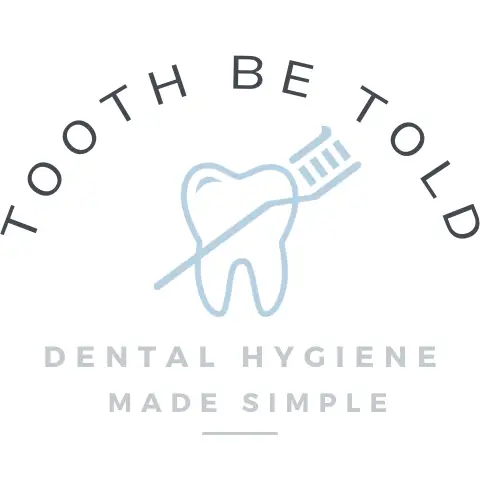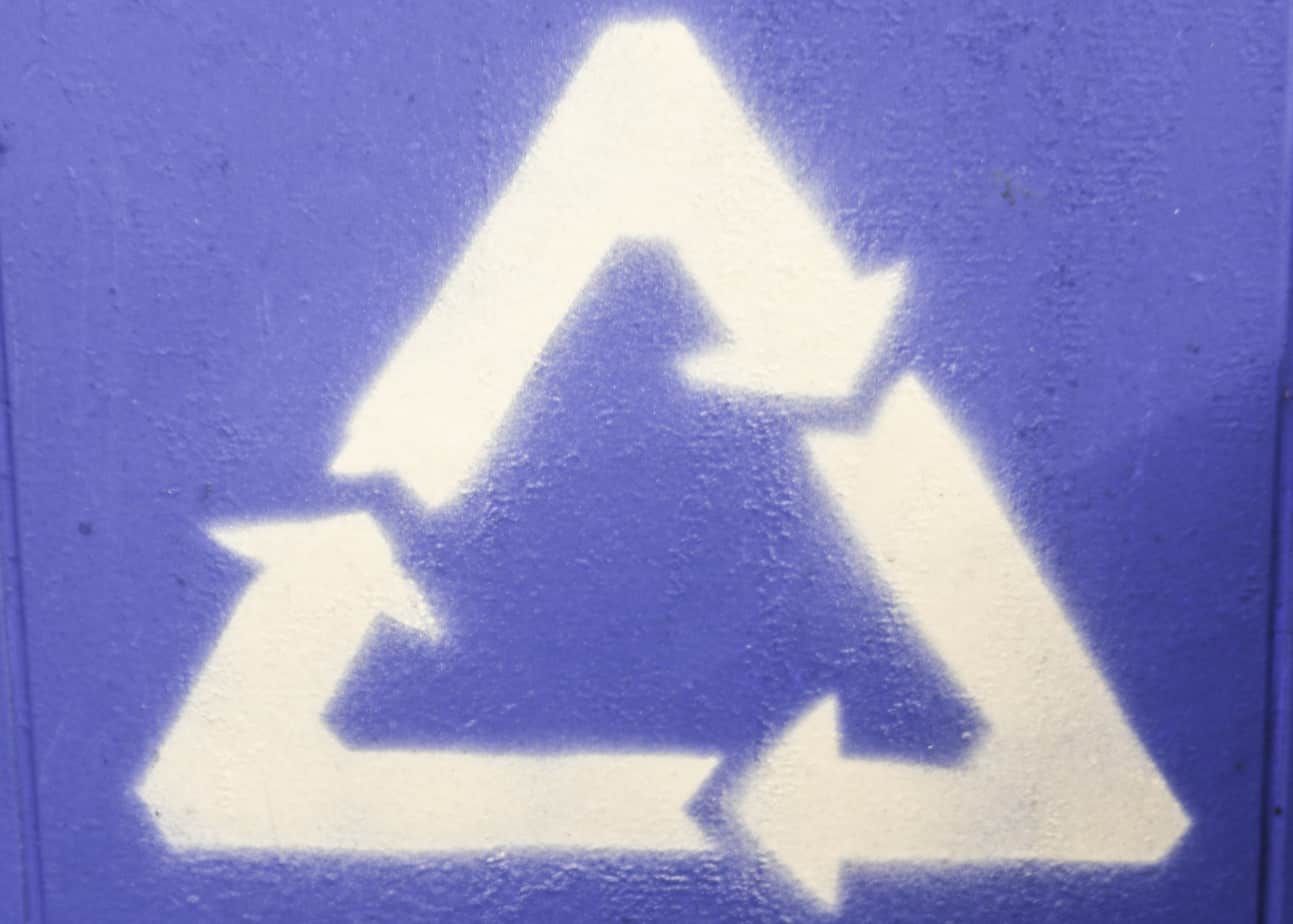
The amount of unrecyclable plastic waste in dentistry is astronomical. Some of the waste is necessary for infection control purposes but when you look at the big picture, there is just too much plastic waste. But what about your electric toothbrush? Can the replacement toothbrush heads be recycled?
Replacement electric brush heads cannot be recycled in your regular city recycling program. However, there is a company called TerraCycle that has an oral health waste box. You can find a drop off location near you, or even purchase a small box to keep at your own home.
They will take the replacement electric brush heads and separate all the different parts in order to properly recycle each part.
We give out plastic toothbrushes, plastic floss, and other dental tools made out of plastic. Your oral health is an important factor in your total health, but we should be more conscious of the waste we produce by maintaining our oral health.
I am a huge advocate for electric toothbrushes because they are so much more effective than using a manual toothbrush. But again, all those heads add up to a lot of plastic waste over time. Every little piece counts.
Why you can’t recycle electric toothbrush heads in your regular recycling bin
You can’t throw your brush heads into your regular recycling bin because of the many different small components that make up the replacement brush head. They have different plastics and tiny metal parts inside that make the toothbrush move and hold in the bristles.
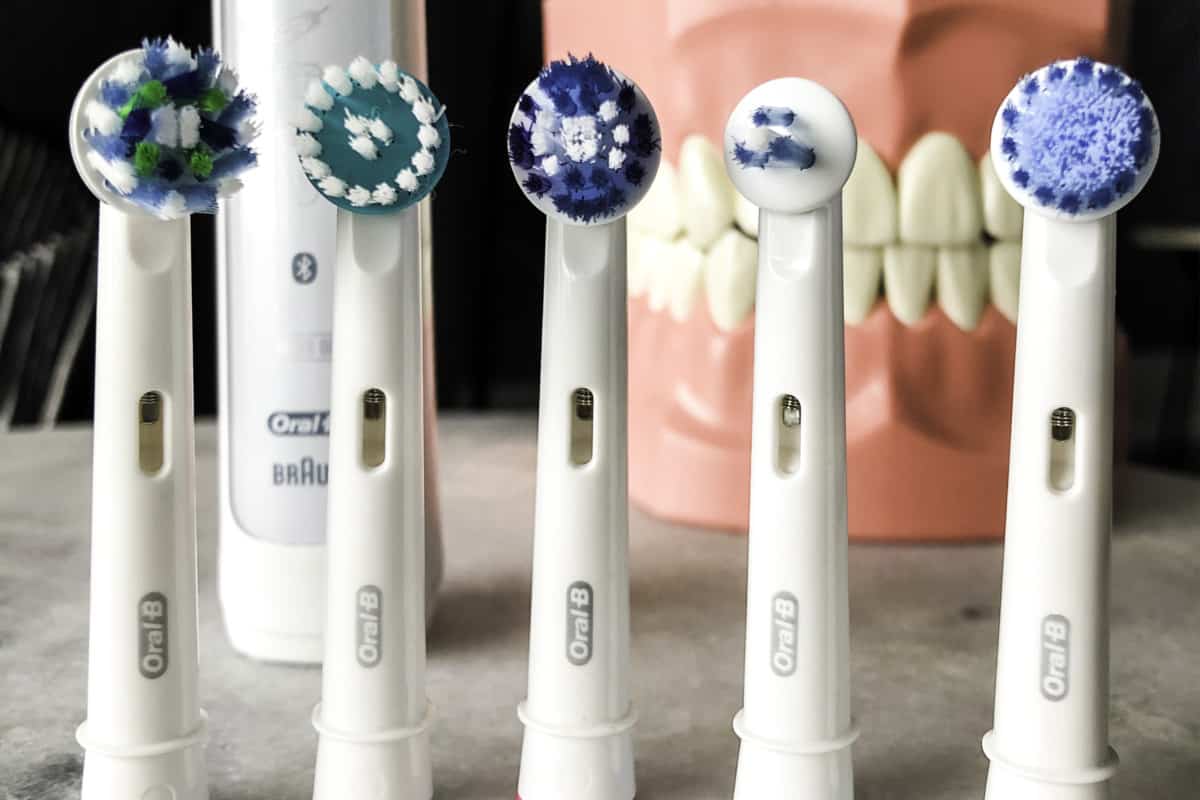
Also, they are made of a mixture of different plastics, for example, Oral-B replacement brush heads are made out of rubber (TPE) and Polypropylene which cannot be readily recycled. And Sonicare uses the same and similar materials and can’t be recycled either.
Toothbrushes into playgrounds!
TerraCycle has many different programs to combat waste. The waste that is collected is separated both by hand and mechanically. It is then hydropulped and the plastic is recycled into plastic polymers which goes on to be made into different recycled products.
has many different programs to combat waste. The waste that is collected is separated both by hand and mechanically. It is then hydropulped and the plastic is recycled into plastic polymers which goes on to be made into different recycled products.
This company has even made playgrounds out of recycled waste!
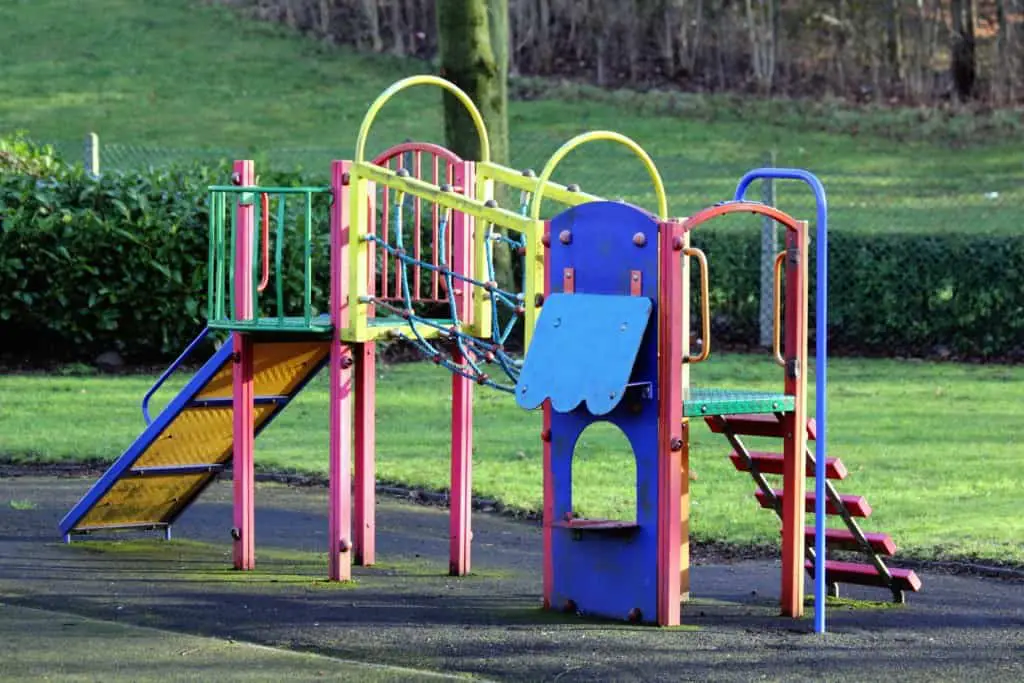
TerraCycle oral waste bin doesn’t just take the brush heads, you can recycle;
- Toothpaste tubes (including caps)
- Plastic manual toothbrushes
- Outer packaging
- Floss containers
Make an impact on the earth
Recently my husband and I went on a trip to the Great Barrier Reef in Australia, and while snorkelling, the extent of the reef damage from warming waters and plastic entering the ocean was right there in front of us. Bleached coral and diminishing numbers of fish are just the tip of the iceberg.

On the same trip, we were affected by the devastating bushfires that are destroying people’s homes, animal habitats and the stunning landscape.
Sometimes we can have an “out of sight, out of mind” approach. And I definitely had that mindset a couple of years ago.
Through learning about climate change effects and seeing it first hand, I am determined in making small changes that can have a huge impact!
If everyone is replacing their brush head every 3 months as recommended, and they are using a plastic brush, it adds up to a lot of waste. There was even a story of a bird trying to regurgitate a toothbrush to feed its baby bird!
With the likes of TerraCycle and other emerging companies with the same frame of mind, we can start to combat our oral health plastic waste.
Replacement heads are less waste than plastic manual toothbrushes.
Because of how small the replacement brush heads are, they produce much less waste than their manual counterparts.
Using an electric toothbrush will actually produce less plastic waste over time than using a plastic manual toothbrush.
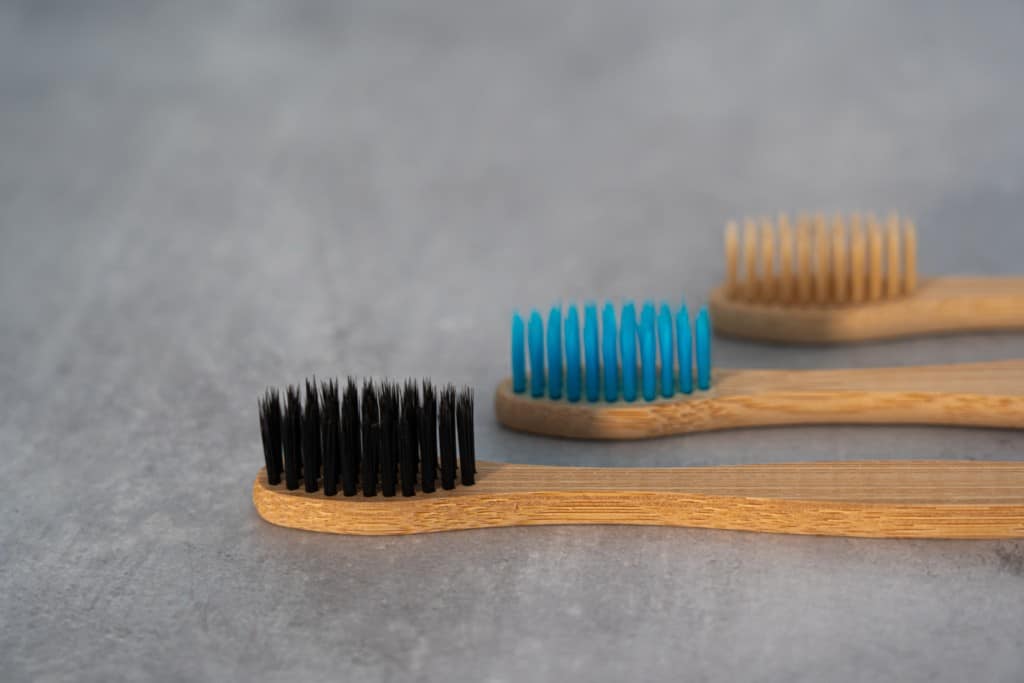
If you are looking for a more environmentally friendly option, you should try using a Bamboo/eco-friendly manual toothbrush. But remember, Oral-B electric toothbrushes have been scientifically proven to be more effective at removing plaque, resulting in a healthier mouth and in turn a healthier body.
Read Now: 12 Benefits of Using an Electric Toothbrush
Why you should never buy generic brush heads
I have seen some replacement brush heads online that claim to be environmentally friendly and less waste but should you be buying them? The answer is no!
There are a number of reasons why you should never buy off-brand replacement brush heads.
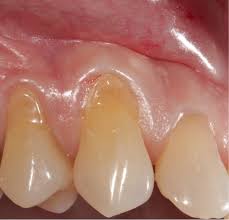
They can cause irreversible damage to your gums and teeth. Oral-B and Sonicare ensure the quality of materials that are used. Fake heads may not spin properly, or stop moving altogether when pushed against the teeth and gums, resulting in the brush not removing the plaque.
Plaque that is not removed can contribute to gum disease (gingivitis and periodontal disease) and dental decay.
The bristles may come loose and fall out of the fake brush head which you could potentially swallow.
The small metal components could also come loose, and they could be choked on or swallowed.
Fake replacement brush heads can be made out of unsafe materials that are poor quality including the ink used to dye the plastic and bristles. We also may not know where they are being made, how clean the factory is and what are the standards of manufacturing. There have even been warnings from the United States Customs and Border Protection to watch out for fake electric brush heads. Spending a little bit more is definitely worth it for your health and safety, there is no price on that.
Spending a little bit more is definitely worth it for your health and safety, there is no price on that.
I really wish there were better options or easier access to more environmentally conscious products. Although we have improved, issues also arise in what goes on behind the scenes even before we have the product in our hands.
Everything is manufactured, comes in packaging and needs to get from point A to point B either by air, car, or boat. And all of those things have their own environmental impact.
We cannot be perfect, but we can try our best to do our part.
There are other easy ways to reduce your carbon footprint and plastic waste and doing what we can to make a difference.
Read Now: Dental Hygienist’s Eco-Friendly Bathroom , explains other ways to make your dental routine at home more eco-friendly that you may not have thought of.
, explains other ways to make your dental routine at home more eco-friendly that you may not have thought of.
What about recycling the electric toothbrush handle?
When it’s time to retire your electric toothbrush handle, you will want to recycle it like you would a battery.
The batteries inside the handle can leach chemicals into landfills that can eventually reach our waterways, damaging our eco-systems.
If you are looking at how to remove the battery this video shows how to do it. Remember different models of toothbrushes will have different ways of removing the battery from it.
Most home improvement or electronics stores will accept old batteries. And you could even call them first to see if you need to remove the battery from the toothbrush handle before recycling.
Or you could upcycle it and keep it to help clean other things. How about those hard to reach areas on your sinks and taps or the grout in behind the sink or in the shower? Those little heads are great at cleaning small hard to reach areas.
Can you recycle plastic toothbrush handles?
You can’t recycle manual plastic toothbrushes because they are formed from multiple plastics moulded together which cannot be separated by your local city recycling.
A better option to using a plastic manual brush is to use a bamboo toothbrush.
Can you recycle bamboo toothbrushes?
If you use a bamboo toothbrush it is important to note that you have to cut off the bristles or snap off the head before recycling. The bristles are made out of nylon, which is gentle on the gums and teeth but cannot biodegrade.
I find that some of the advertising for these bamboo toothbrushes can be quite misleading in the sense they claim it to be completely biodegradable when in fact – it is not!
The bamboo brush handle should be composted – as it will break down on its own in a few years if put outside but if you have a home composter it should only take a few months.
There is one “toothbrush” that comes directly from a bush. This toothbrush is called a Miswack and has many benefits to not only your mouth but to the environment.
What is a Miswack Toothbrush?
The Salvadora persica shrub provides this natural cavity-fighting toothbrush. Also known as a siwak, it truly is zero-waste!
I tried a fresh one when I spent a month in Tanzania, and it was actually amazing. We went to the “toothbrush” tree and cut off a small branch and I used it to clean my teeth.
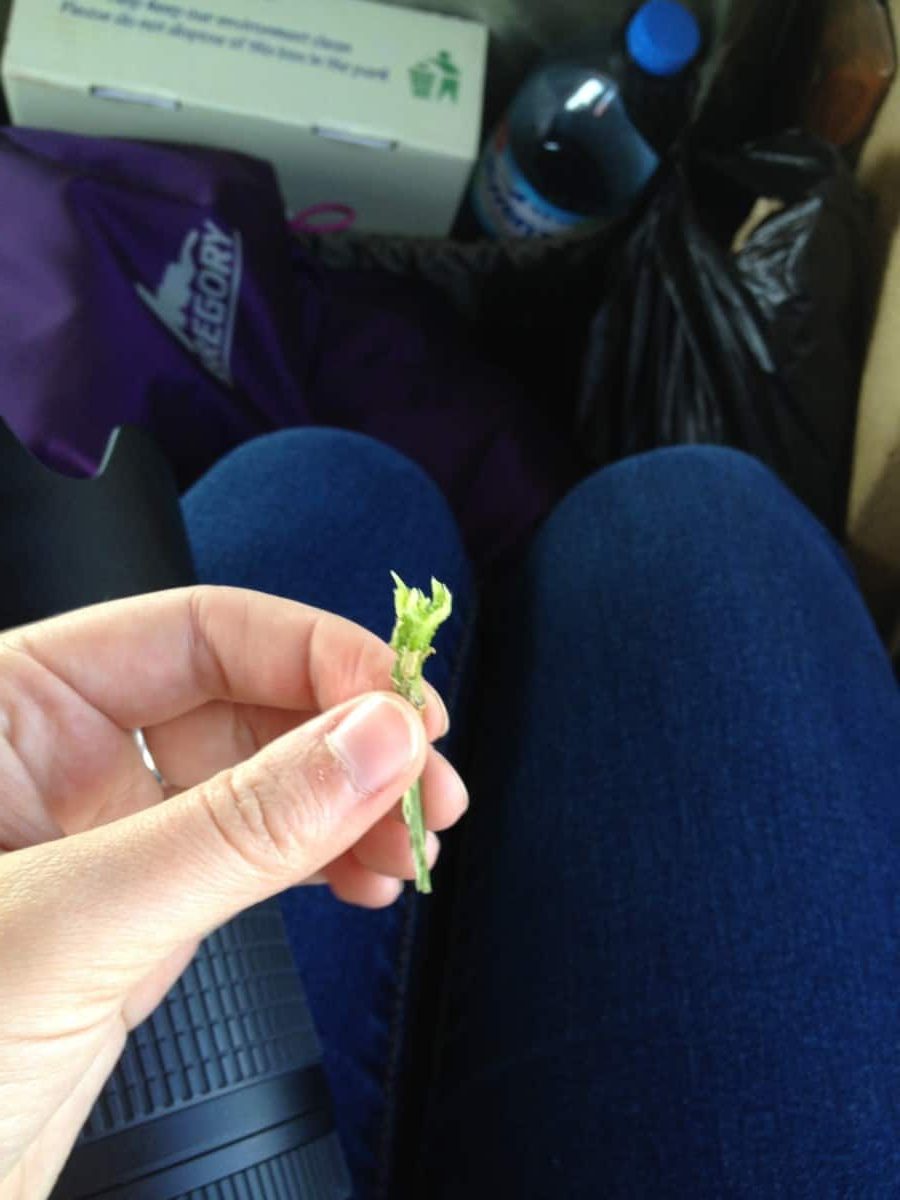
The interesting thing about this stick is that it has naturally occurring fluoride in it that will contribute to preventing tooth decay. But also contains other vitamins and minerals to help in tissue healing, reducing bacteria and yeast, and creating layers on the tooth to prevent acid eroding the enamel.
This study outlines all the benefits of using a Miswack stick.
outlines all the benefits of using a Miswack stick.
To see what Oral-B toothbrush head is right for you, read; Which Oral-B Toothbrush Head Should You Be Using?
Happy Brushing
Holly 🙂
